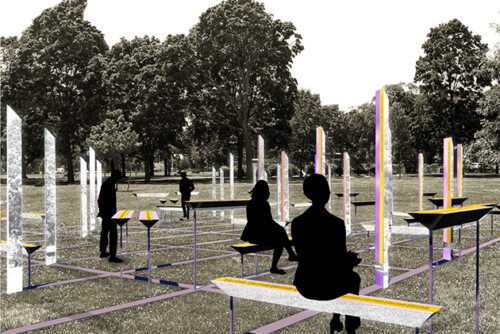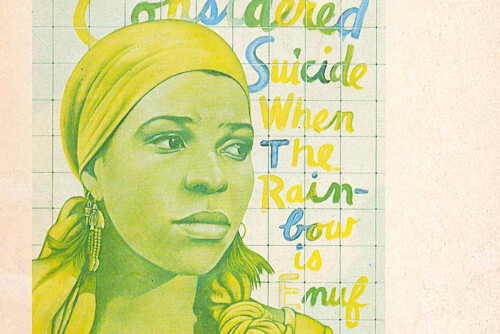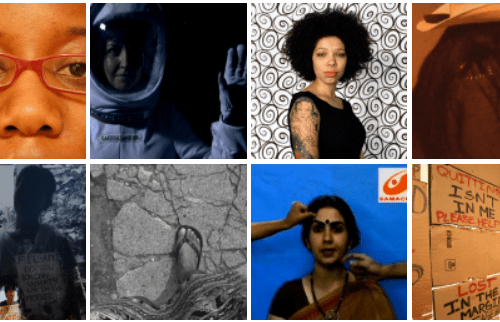For several years before the Scholar & Feminist Conference XXXIX – “Locations of Learning: Transnational Feminist Practices,” activists and scholars had been exploring how, in the aftermath of movements like the Arab Spring and Occupy Wall Street, the distinctions between on the ground and online social movements were increasingly blurred. In this panel, scholars, writers, and activists explore a number of issues in different communities and locales across the globe, issues that persist to this day. They inspire us to think anew, and at levels of specificity, about the relationship between media, representation, power, social movements, and community. In our pandemic era, our virtual connections to each other as activists, writers, and scholars have taken on new meaning, calling for ongoing discussion about how to act and think together in and with digital spaces.
In this conversation, Iranian women’s rights and media activist, Mahboubeh Abbasgholizadeh, foregrounds how activists can continue to build demands and movements when public sites like NGOs and the streets come under surveillance from authoritarian governments, an issue that is sadly relevant in many places around the world. Abbasgholizadeh considers how women’s capacity building and networking in Iran moved from real space to the underground, as women developed skills as “backpack activists.” With all the tools they needed “on their back,” women’s rights activists produced videos about a variety of women’s issues, distributing them to their contacts via cell phones. In the wake of the Green Movement in 2009, as activists were exiled, Iranian women’s rights activists created virtual transnational networks across many countries and several continents, scaling up their backpack activism to create streaming television channels to broadcast their campaigns and struggles.
Tamura Lomax recalls the difficulty in getting media outlets to publish articles about Black women and representation, prompting her to found, with Hortense Spillers, The Feminist Wire (TFW). After Spillers left The Feminist Wire, Lomax reorganized the online publication around her identity as a scholar-activist. Lomax discusses her concerns around “mass mediated meanings about certain kinds of bodies” and how “media might be used to mass mediate an alternative kind of meaning.” Lomax asks: How do dominant ideas of Black femaleness get produced over and over again? And how might mass media offer different kinds of meaning? Working across transnational borders, TFW prioritizes collective and public facing work that produces, as Lomax says, “accessible” feminist work. As both a community and a publication, a collective that is also a business, TFW builds “circles” of connections, an intimate and feminist labor that, as Lomax says, is never easy.
Laura Hale, a Wikipedian (regular contributor to Wikipedia), raises concerns about the sexism inside Wikipedia, in terms of content and masculinist norms. Recognizing Wikipedia as an important site of feminist knowledge production, and a widely used resource for writers, scholars, and journalists, Hale charts her trajectory in filling the gaps around women in sports. Maria-Belén Ordóñez of FemTechNet urges us to think through “digital scattered hegemonies” to critically engage traditional and elitist modes of knowledge production. Discussing FemTechNet’s DOCC (Distributed Open Collaborative Course), a feminist challenge to the MOOC (Massive Open Online Course), Ordóñez highlights this alternative platform as one which uses feminist principles and pedagogical methods alongside the traditional physical classroom to generate “polyvocal, dialogical, multi-sited and rhizomatic” modes of learning and knowledge production.
As the panelists discuss the “in-betweenness” of their modes of knowledge production – in between activism and scholarship; in between the on-site and the online; in between collective and community spaces and businesses – they explore the difficulties, tensions, joys, and pleasures of engaging digital transnational feminist projects. The proliferation of mediated social movements, conferences, discussions, and collaborations since this discussion in 2014, let alone the significance and centrality of virtual space in pandemic times, makes it difficult to think outside of the digital. This conversation is one of many that can help us navigate this transnational and digitally-defined terrain of our times.




